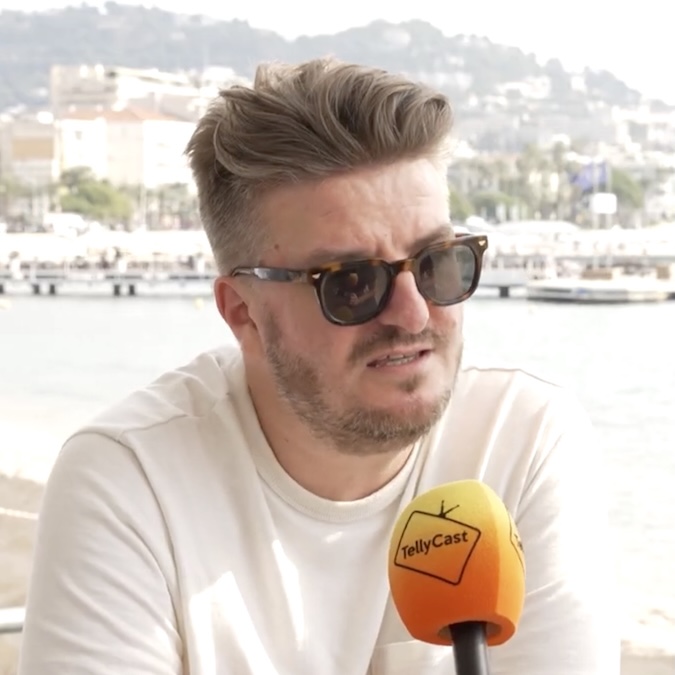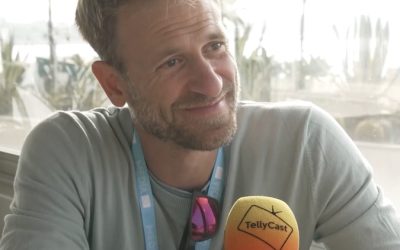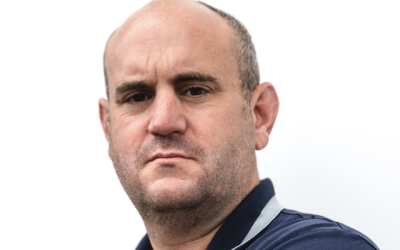At MIPCOM, amid the usual frenzy of speed meetings, Spirit Studios founder Matt Campion was calm, confident and clearly a man with a plan. His company, long regarded as one of the UK’s most innovative digital-first studios, is now pushing boundaries in two of the most talked-about frontiers of the content business: AI-assisted production and vertical-video storytelling.
Spirit’s latest project, Ed Gein: Original Psycho for Hearst’s Sky Crime and Investigation, is a case in point. The two-part documentary explores the disturbing life of the real-world killer who inspired Psycho, The Texas Chainsaw Massacre and Silence of the Lambs. But what sets the film apart isn’t just the subject — it’s the technology behind it. “Twelve percent of the programme is generative AI video,” says Campion. “We didn’t have Netflix-level budgets for large reconstructions, but we wanted to avoid generic stock footage. AI allowed us to prompt the visuals we needed to help tell the story.”
That use of AI wasn’t about gimmickry or cost-cutting, he explains, but about precision storytelling. “It’s about enhancing the history and being more intentional with what you show on screen. The craft isn’t changing — just the tools we use.”
This pragmatic embrace of AI typifies Spirit’s hybrid mindset: a digital-first studio that still thrives in the traditional broadcast world. The company now operates across four integrated divisions — television (scripted and unscripted), podcasts, branded content and a multi-channel YouTube network running over 200 channels. That combination gives Spirit the flexibility to create, finance and distribute content in new ways at a time when the boundaries between TV, social video and streaming are dissolving fast.
The studio’s latest collaboration with Night Train Media on a micro-drama — or vertical drama — series is another example of how fast that transformation is happening. “Micro-drama is the next big evolution,” Campion says. “It’s not just drama either — we’ll see it in reality, documentary and beyond. Think Married at First Sight: every ad break ends on a cliffhanger. That format rhythm fits perfectly with this world.”
Spirit and Night Train are now developing their first vertical drama series: sixty 90-second episodes designed for smartphone viewing. “You’re essentially making a 90-minute film in micro-chapters,” says Campion. “Every episode has to end with a cliffhanger to keep people scrolling. We’re currently writing the series and in talks with several short-form platforms. The plan is to partner with a platform first for monetisation, then release future series more widely while building a fan community around the IP.”
That concept of “IP 360” — building a brand that lives across platforms — has become a mantra at Spirit. “It’s about creating something returnable, with fan fiction, books, podcasts or TV spin-offs. We’re developing companion podcasts and behind-the-scenes content for this micro-drama because the audience wants to live in that world, not just watch it.”
Campion sees this as part of a larger shift: the democratisation of production and the rise of what he calls the “new digital-first TV economy”. In this landscape, producers can’t rely solely on traditional commissioning pipelines. “We’re doing different deals now,” he says. “Partnerships, acquisitions, joint ventures — it’s not all straight commissions anymore. Broadcasters still need hours to fill, but budgets are tighter because ad money’s gone to social. That’s where AI and smarter production methods come in: making high-quality content cost-effectively.”
Spirit’s hybrid model is already proving that flexibility pays off. The company has created branded content for broadcasters, produced always-on talk shows that live in both audio and streaming environments, and used AI tools to scale production value without scaling cost. “You can still make big-budget shows,” Campion insists. “But there’s also a growing space for ideas that punch above their weight financially — and that’s where the opportunity is now.”
As the TV and social-video worlds continue to merge, Spirit Studios looks like a bellwether for where the industry is heading: platform-agnostic, data-literate and creatively restless. “It’s all about building brands and communities,” says Campion. “If you can do that, the format — whether it’s vertical, audio, or AI-enhanced — is just the medium. The idea is what really matters.”
And judging by Spirit’s current momentum, the ideas — and the ambition — are showing no sign of running out.
Matt Campion will appear at the TellyCast Digital Content Forum on 6th November on the Micro drama: Fad or the Future panel session





